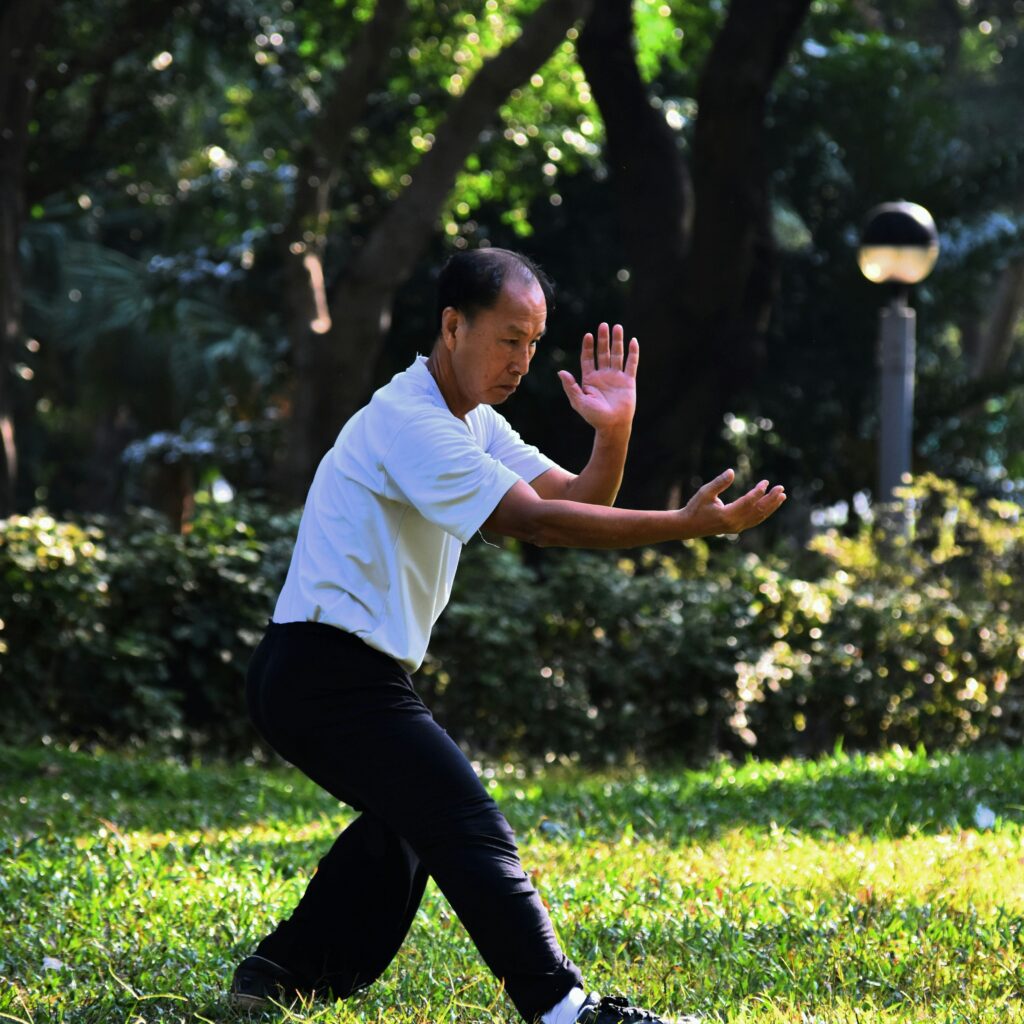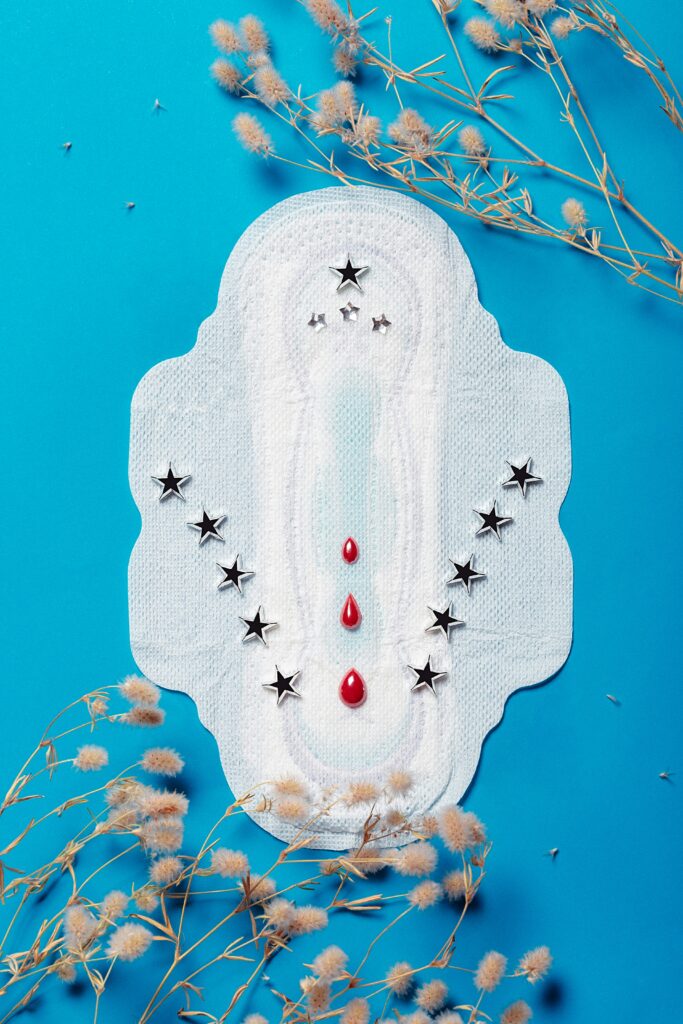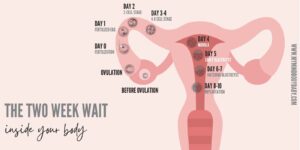Fertility issues can lead to a challenging and emotionally taxing journey for many individuals and couples. Whether you are at the start of your journey and trying to conceive on your own or have been at it for a few years and working with a fertility clinic – chances are you are trying everything you can at home to improve your likelihood of success. Unfortunately, there is a lot of overwhelming and inconsistent information online. As a fertility-focused acupuncturist, I wanted to take the time to write a thorough blog post on the best self-care tips for boosting your fertility based on Traditional Chinese Medicine (TCM) principles.
TCM provides a holistic approach to self-care that focuses on balancing your body’s energy and promoting over-all well-being. The concepts of Yin/Yang and Qi are at the core of TCM fundamentals, so it is imperative that your fertility strategies are aligned with creating balance and harmony in the body and mind using these key TCM principles. In addition to regular acupuncture sessions, there are many small lifestyle changes that you can implement at home to help enhance your chances. Read below to find out more.
TCM Self-Care Tips for Enhancing Fertility

- Stay Warm – In TCM, cold is considered a Yin energy and represents stillness, darkness, inwardness and femininity. When trying to conceive, if there is an imbalance in Yin energy this can lead to excessive cold accumulation in the uterus – which is unfavourable for reproduction. A ‘cold uterus’ is a stagnant uterus with poor flow of Qi and blood to the reproductive organs and pelvic cavity. Symptoms of a cold uterus include: a feeling of coldness around the abdomen and lumbar areas, irregular menstrual cycles, light/scanty menstrual flow and cold hands and feet. This can be caused by an excessive consumption of cold-natured foods (i.e. ice water, ice cream, raw vegetables), over-exposure of the torso to external cold (i.e. wearing crops tops in winter!), as well as excessive stress and anxiety. It it best to keep your body warm by: dressing appropriately for cold weather (scarves, socks, hats and long shirts), eat warm foods (soups, stews and tea – more on diet below) and managing stress with meditation and other mind-body techniques (more on that below).

2. Sleep – Quality sleep plays a crucial role in maintaining hormonal balance, and this, in turn, has significant implications for fertility and reproductive health. Hormones are essential messengers in the body and they regulate various physiological processes, including those related to the reproductive system. It is important to have regular sleep-wake cycles in order to maintain your own Circadian Rhythm (your “internal clock”). This rhythm allows for the secretion of hormones at regular time intervals in order to maintain hormonal balance. Give yourself the same bed time each night and try to wake consistently at the same time each day. Growth hormone, Melatonin, Gonatropin-releasing hormone (which influences LH and FSH), cortisol, estrogen, progesterone and testosterone (men) are some of the main reproductive hormones that are affected by sleep. Adequate sleep will help to balance these hormones and regulate menstrual cycles, promote ovulation and improve sperm production and quality. *Sleep tip – the pineal gland releases melatonin and is sensitive to light. It is best to sleep in complete darkness to reset your hormones. Seeing light will “trick” your brain into thinking it is daytime. Use an eye mask or purchase black-out blinds and remove all light from your bedroom. (As a side note, there are also good studies to support the link between regular sleep and smaller waist circumference. If weight gain is an issue for you this is another reason to make sure you are having enough sleep as a high BMI has also been linked to infertility and ovulatory issues).

3. Diet & Nutrition – Around the year 400 BC, Hippocrates (known as “The Father of Modern Medicine”), was quoted as saying, “Let food be thy medicine and medicine be thy food”. This quote remains true to this day when we are inundated with processed foods, excess sugars and artificial flavours and colours. In Traditional Chinese Medicine, a diet for enhancing fertility focuses on nourishing Yin and Yang, regulating Qi and blood and balancing the overall energy flow in the body by eating whole foods, herbs and spices. Keep in mind that individual recommendations may vary based on a person’s specific constitution and health condition. (If you have been diagnosed with endometriosis, PCOS or another metabolic condition you will require a more customized diet plan. Give us a call for further information). Here is a general list of foods often recommended in a TCM medicated diet to support fertility: Goji berries, Chinese dates, Black sesame seeds, Chinese yam, pumpkin seeds, walnuts, millet, eggs, salmon, spinach, ginger, turmeric, dark leafy greens (Kale, collard greens). *It’s crucial to remember that diet alone is just one aspect of a comprehensive approach to fertility. Consulting with a qualified TCM acupuncturist can provide personalized guidance based on your individual health condition, constitution and fertility goals. Additionally, combining dietary recommendations with other TCM modalities such as acupuncture and herbal medicine may offer a more holistic approach to enhance fertility.

4. Mind-Body Techniques – Mind-body techniques can play a significant role in supporting fertility by reducing stress, promoting relaxation and enhancing overall well-being. Here is a list of some of the best mind-body techniques for fertility:
- Mindfulness Meditation: Mindfulness meditation involves cultivating awareness of the present moment without judgment. It can help reduce stress and improve overall mental well-being. Benefits for Fertility: Reduces stress, enhances emotional balance and may positively influence hormonal balance.
- Yoga: Yoga combines physical postures, breath control and meditation to promote physical and mental well-being. Benefits for Fertility: Improves flexibility, reduces stress and supports overall reproductive health.
- Guided Imagery – Guided imagery uses visualization techniques to create mental images that promote relaxation and positive emotions. Benefits for Fertility: Reduces stress, enhances relaxation and helps create a positive mindset.
- Tai Qi – Tai Qi is a Chinese martial art with slow, flowing movements, deep breathing and meditation. Benefits for Fertility: Improves balance, reduces stress and promotes overall well-being.
- Qi Gong – Integrates movement, breath and meditation to cultivate and balance Qi along acupuncture meridians and channel pathways. Benefits for Fertility: Enhances energy flow, reduces stress and supports overall well-being.
- Positive Affirmations – Repeating positive statements to reinforce a positive mindset. For example,” I welcome new life into my body.” Benefits for Fertility: Supports a positive mindset, reduces negative thoughts and promotes emotional well-being.
5. Cycle Awareness – It is important to become educated and aware of your own body and how it functions. Tracking and monitoring your menstrual cycle can provide valuable insight into your reproductive health. Looking for signs of ovulation such as changes in cervical mucus and basal body temperature can help you learn your body’s natural rhythm and fertile window. Also, take note of your cycle length (day 1 from one cycle to day 1 in the next cycle). The average cycle length should be 28-30 days. Cycles that are too short or too long may be an indication of a hormonal issue and it would be a good idea to have some bloodwork done. You also want to look for consistency in your cycle length. It should come around the same time every month, plus or minus a day. Lastly, observe your menstrual blood – the colour should be bright, fresh red, there should be no clots and the flow should be moderate in volume (not too heavy or too light). In TCM, it is recommended to wear sanitary napkins (pads) rather than tampons or a menstrual cup. The reason for this is that during menstruation energy is moving in a downward direction and your menstrual blood needs to flow. Wearing a tampon or cup is essentially putting a plug in your cervix and stopping the natural flow of energy. Over time, this creates stagnation in the uterus, which is not ideal for reproduction. Knowledge is power – the more you know about your cycle the more you can notice patterns, look for any unusual changes in your cycle and properly time intercourse in your fertile window.
As you can see, there are many different things you can incorporate into your daily life that will compliment your acupuncture and fertility treatments. The more balanced and aligned your are the more your body will be able to prioritize and focus on reproduction. These are all no or low-cost strategies that can be easily adapted to suit your lifestyle. If you are looking for a more specific lifestyle plan that is tailored to you and your body constitution feel free to schedule an appointment for a one-on-one consultation.
Book Now
Book online HERE
Call reception: 905.553.9255
About Amanda Barone, B.Sc. R. Ac, R.Kin
Amanda Barone is a registered acupuncturist and kinesiologist based out of Maple (Vaughan), Ontario. She has been practicing TCM since 2010 and has a clinical focus on treating fertility and pregnancy wellness. To Read her entire Bio click HERE





